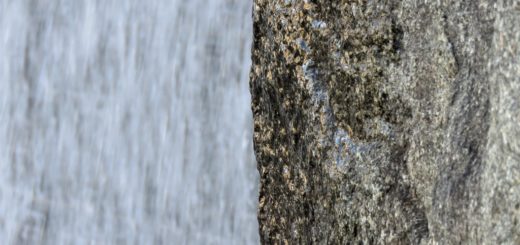Dr. McConnell and Mr. Trump Part VI: The Press Conference
Donald Trump and Mitch McConnell, falsifying my Jekyll and Hyde hypothesis that they are actually the same person, have appeared together at a press conference, where they reassured everyone…that they are actually the same person.
I understand your doubts: McConnell is a mealy-mouthed, vowel-swallowing, conniving turtle, whereas Trump is a crude, thought-disintegrating, pinwheel-hat-level vulgarian. Ergo, Jekyll and Hyde.
So when it’s time for GOP establishment business as usual — that is, slowly trading away the last remnants of the republic to the progressives in exchange for permanent incumbency — Dr. McConnell is the face of the party. But when it’s time to grub for votes by appealing to the baser instincts of the unwashed masses among the grassroots, or to bludgeon civilized constitutional conservatives to death with a rhetorical walking stick (aka Twitter account), then Mr. Trump comes to the fore.
In Robert Louis Stevenson’s original novella, it is only when Dr. Jekyll’s friend and lawyer Mr. Utterson begins to investigate the peculiarity of Jekyll’s insistence on making the revolting Hyde his sole beneficiary that the shocking truth slowly begins to emerge: They are not the polar opposites they might appear to be on the surface, but in fact merely flipsides of the same corrupted coin. Jekyll’s repressed desire for amoral destructiveness and rebellion against all traditional limits of conscience is released in the persona of Mr. Hyde. Hyde’s need for a respectable public face to provide the cover story and material support for his dark urges is satisfied by Dr. Jekyll’s honored place in the social establishment.
Similarly, McConnell, along with allies such as Karl Rove and John Boehner, has long made destroying the constitutional conservative movement a chief goal of his political life, and certainly a much higher priority than combatting progressives, who of course are best served by McConnell’s efforts to thwart constitutionalists. The seed of Hyde-ism within him was revealed when, in response to conservative challenges to his own Senate seat and those of many of his lackeys, McConnell vowed to “crush” the Tea Party.
And during his 2013-14 Kentucky primary, no individual was more supportive of McConnell’s campaign against Tea Party challenger Matt Bevin than Donald Trump, who was one of a handful of major donors to Kentuckians for Strong Leadership, the spin-off PAC of Karl Rove’s anti-conservative American Crossroads, which was created (by non-Kentuckians for weak leadership) solely to back McConnell. Trump also publicly endorsed McConnell on Twitter, as well as chipping in an extra $10,000 directly to McConnell’s campaign fund.
Their seemingly inexplicable symbiosis continued during Trump’s own GOP primary campaign, when, as the kick-off of his gutter-dredging smear assault against Ted Cruz, Trump initiated his ever-popular “Everybody hates Ted” schoolgirl cattiness by attacking Cruz for having stood up to “his leader” Mitch on the Senate floor. Yes, Trump’s first and most enduring attack against Cruz was in fact an explicit defense of McConnell.
The establishment of which McConnell is the public figurehead thereafter embraced Trump’s campaign as the most plausible hope of achieving their top two priorities: power and wealth for themselves and death for conservatism. At a precarious moment of growing intolerance of their milquetoast machinations, the old guard found in Trump the perfect solution, a man who had built an enormous and unshakeable cult on the lie of being an anti-establishment wrecking ball, while in fact being an empty-headed, insecure attention-seeker who would happily follow the lead of anyone in power who could support him and promise to protect him from looking foolish. In other words, Trump was the dream candidate for an establishment facing an approaching lynch mob: a demagogue and fake rebel who would draw the lynch mob to himself as its supposed leader, and then lead the mob right into compliance with the same old establishment power structure.
Thus it was that millions who had sworn never to support the GOP again on its tired old “binary choice” mantra, were suddenly attacking the conscientious objectors who refused to support Trump under any circumstances with the very same mindless “binary choice” argument they had supposedly rejected.
Thus it was that after being elected President of the former “freest nation in history,” now the biggest progressive swindle in history, one of Trump’s first cabinet appointments was Elaine Chao, aka Mrs. Mitch McConnell.
Thus it was that Trump fell in line, as he always will, and supported McConnell’s yes-man Luther Strange in Alabama’s U.S. Senate race, rather than either of the two more conservative options available at the outset, including the eventual winner Roy Moore, who was supported even by Trump’s alt-right mask, Steve Bannon, not to mention most actual constitutionalists who paid attention to the race.
What does this Jekyll and Hyde relationship mean for the fates of the “two” men? In Stevenson’s brilliant novella, Hyde, who is ultimately just an expression of Jekyll’s innate corruption, gradually gains in strength, breaks his “creator” to submission and humiliation, and finally destroys the good doctor — along with himself, of course. Jekyll’s horrifying lesson, learned too late, is that the darkest impulses of the soul, once released, cannot be neatly contained in a safe compartment of the night, leaving the agent master of himself and his reputation in the daylight. Increasingly, the ugliness he has unveiled will insinuate itself even into his ordinary life. In the end, there can be no “business as usual” for one so immoderate as to turn to hatred, illiberality, and consciencelessness as instruments of self-aggrandizement.
Instantiating, in the most terrible way, Plato’s warning about the actor’s mask becoming his face, Jekyll’s world and mind implode due to the vacuum created by allowing his alter ego to slowly devour his core.
Trump is pure, mindless destruction and impulse. McConnell, who has depended for years on his ability to exert subtle control over his surroundings in order to sustain the illusion that he is something more than a progressive termite in the conservative house, may be fated to lose that control before long. His semi-domesticated id, Trump, may slip its leash at last and ultimately bring the whole house down upon McConnell himself, whether in the form of a precipitous slide into full-blown authoritarian populism, or of something even more catastrophic.
The collapse will crush every other American too, of course, but “every other American” has never been McConnell’s concern. That, in fact, may turn out to have been his fatal flaw.
For more on the details of this strange case of alter egos that led me to start calling Trump “the Orange McConnell,” I recommend my previous five installments in this series, as follows:



